Current Affairs 07 October 2023
Today’s News
City AQI turns ‘poor’; prohibitions to curb air pollution imposed
(Current Affairs 07 October 2023 | Relevant for Prelims, Environment and Ecology)

- Delhi’s Air Quality Index (AQI) slipped into the “poor category” at 4 p.m. on Friday, following which Stage 1 of the Graded Response Action Plan (GRAP) was imposed in the National Capital Region (NCR) to prevent further deterioration of air quality. The GRAP is a set of emergency measures taken to reduce air pollution.
- The GRAP’s Stage 1 has a 27point action plan, which includes sprinkling water on roads, using antismog guns, and ensuring proper disposal of construction and demolition waste.
- It also mandates the suspension of work at private construction and demolition projects of 500 sq m or more not registered on the portal of the respective State government for remote monitoring of dust mitigation measures.
- The Committee for Air Quality Management, a statutory body responsible for proactively implementing the GRAP, said various agencies responsible for implementing the action plan have been directed to ensure strict implementation of the pollution control measures.
Refresh Basics
Air quality index
- Launched in 2014 with outline ‘One Number – One Color -One Description’ for the common man to judge the air quality within his vicinity.
- The measurement of air quality is based on eight pollutants, namely: Particulate Matter (PM10), Particulate Matter (PM2.5), Nitrogen Dioxide (NO2), Sulphur Dioxide (SO2), Carbon Monoxide (CO), Ozone (O3), Ammonia (NH3), and Lead (Pb).
- AQI has six categories of air quality. These are: Good, Satisfactory, Moderately Polluted, Poor, Very Poor and Severe.
- It has been developed by the CPCB in consultation with IIT-Kanpur and an expert group comprising medical and air-quality professionals.
Initiatives taken by India for Controlling Air Pollution
- System of Air Quality and Weather Forecasting and Research (SAFAR) Portal
- Air Quality Index
- Push for Electric Vehicles (EVs)
- Commission for Air Quality Management
- Turbo Happy Seeder (THS) Machine
Aligning higher education with the United Nations SDGs
(Current Affairs 07 October 2023 | Relevant for GS paper-2, Government policies and interventions for development in various sector and issues arising out of their design and implementation)
- The United Nations Sustainable Development Goals (SDGs) are a set of 17 goals with 169 targets that all 193 UN member states have agreed to try to achieve by 2030. SDGs are a matter of urgency, and actions by all countries, both developed and developing, to end poverty and other socioeconomic and environmental problems should align with strategies that improve the standard of life and education, reduce inequality, and harness economic growth.
- Though it has been eight years since the inception of these goals, the SDGs Report 2023 flagged slow progress and painted a grim picture due to the prolonged effects of COVID19, impacts of the climate crisis, the Russia Ukraine conflict, and a weak global economy.
- India, despite having managed the crises of the global economy and relatively succeeded in overcoming the challenges posed by the pandemic, has suffered a setback in achieving these goals.
- Yet, recent actions and policies indicate that India is committed towards realising SDGs. SDG4 pertains to access to quality education. It is a prerequisite for the achievement of other goals.
- India, with a long standing history of equitable and inclusive education, has accelerated efforts to ensure the achievement of SDGs through various reforms. Among them, the National Education Policy (NEP) 2020 should be given credit to a great extent.NEP 2020 has been prepared in tune with most of the SDGs.
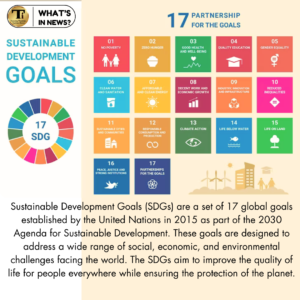
- Though NEP 2020 calls for changes at all levels of education, priority should be accorded to higher education as it accelerates social mobility, empowers people through creativity and critical thinking, and grants them employment skills.
- According to data from the Organisation for Economic Cooperation and Development (OECD), people with a higher education degree are more employable and earn an average of 54% more than those who only have completed senior secondary education.
- Universities should strengthen the research teaching nexus in university education. That way, students will become direct benefactors of the knowledge generated from research.
- Multidisciplinary and interdisciplinary systems of education produce multitalented people who can pursue research, and find innovative solutions to global challenges such as affordable and clean energy (SDG7), sustainable cities and communities (SDG11), climate change and global warming (SDG13), as well as studying their impact on an economy and the earth.
- Sustainable development is possible only if we radically change the way we produce and consume (SDG12). Innovative solutions and start-ups (SDG9) must be developed in collaboration with private companies.
- NEP 2020 demands that Indian higher education be committed to mapping its day today operations with SDGs. Ranking universities according to the achievement of SDGs is a welcome move, but is still inadequate to meet the SDG deadline.
- To accelerate the progress towards achieving the 2030 agenda, stakeholders of higher education should be educated and oriented so that none of their activities leave any SDG behind.
- Universities should come out reinvigorated and play a part in the education, innovation, culture, and civic life of their local communities.
- It is high time that universities adopted sustainability as a mantra and incorporated SDGs into their institutional strategies, both in daily administration and in teaching and research.
RBI flags inflation risk to stability
(Current Affairs 07 October 2023 |Relevant for GS paper-3, India economy and issues related to planning)
- The Reserve Bank of India views ‘high inflation as a major risk to macroeconomic stability and sustainable growth’, and accordingly monetary policy has been focused on aligning inflation to the 4% target on a durable basis, RBI Governor Shaktikanta Das said on Friday as he announced the Monetary Policy Committee’s decision to keep the policy repo rate unchanged at 6.50%.
- The RBI also retained its real GDP growth forecast for 2023-24 at 6.5% and its forecast for average CPI inflation for the current fiscal year at 5.4%.
- The MPC, however, raised its headline inflation projection for the second quarter that ended on September 30, by 20 basis points to 6.4%.
Refresh basics
Monetary policy
- Monetary policy refers to the policy of the central bank with regard to the use of monetary instruments under its control to achieve the goals specified in the Act.
- The primary objective of the RBI’s monetary policy is to maintain price stability while keeping in mind the objective of growth.
- Price stability is a necessary precondition to sustainable growth.
- The amended RBI Act, 1934 also provides for the inflation target (4% +-2%) to be set by the Government of India, in consultation with the Reserve Bank, once in every five years.
Repo Rate:
The interest rate at which the Reserve Bank provides overnight liquidity to banks against the collateral of government and other approved securities under the liquidity adjustment facility (LAF).
Reverse Repo Rate:
The interest rate at which the Reserve Bank absorbs liquidity, on an overnight basis, from banks against the collateral of eligible government securities under the LAF.
Monetary Policy Committee (MPC)
- Under Section 45ZB of the amended (in 2016) RBI Act, 1934, the central government is empowered to constitute a six-member Monetary Policy Committee (MPC).
- Objective: Further, Section 45ZB lays down that “the Monetary Policy Committee shall determine the Policy Rate required to achieve the inflation target”.
- The decision of the Monetary Policy Committee shall be binding on the Bank.
- Composition: Section 45ZB says the MPC shall consist of 6 members:
- RBI Governor as its ex officio chairperson,
- Deputy Governor in charge of monetary policy,
- An officer of the Bank to be nominated by the Central Board,
- Three persons to be appointed by the central government.
This category of appointments must be from “persons of ability, integrity and standing, having knowledge and experience in the field of economics or banking or finance or monetary policy”.
Fish Mint: A Herb with Surprising Health Benefits
(Current Affairs 07 October 2023 | Relevant for Prelims Ecolology)

- Fish mint, also known as Houttuynia cordata or chameleon plant, may not resemble fish in appearance, but its distinct fish-like smell and taste reveal the origin of its unusual name.
- Native to Southeast Asia, this herb thrives in moist soils and is resistant to flooding.
- In India’s north eastern states, it is known by various names and used in salads, fish recipes, and traditional remedies.
- In Meghalaya, it is called ja mardoh. In Manipur, it is called tokning-khok.
- Also, traditional Chinese and Japanese medicine, as well as Ayurveda and Siddha, acknowledge its medicinal properties.
- Recent studies have reinforced its therapeutic potential, including its ability to alleviate asthma symptoms, suppress fever-induced organ damage, combat infectious oral conditions etc.
Deaths in India’s Prisons
(Current Affairs 07 October 2023 | Relevant for GS paper-2, Fundememtal rights)
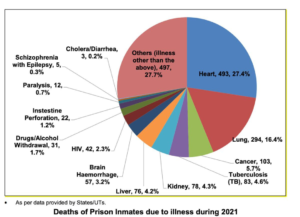
Recently, Supreme Court Committee on Prison Reforms has found suicide to be one of the leading causes of Unnatural Deaths among Indian prisoners.
Facts from Prison Statistics
Number of Prisons:
- The total number of prisons at national level has increased from 1,306 in 2020 to 1,319 in 2021, having increased by 1.0%.
- The highest number of jails was reported in Rajasthan (144) followed by Tamil Nadu (142), Madhya Pradesh (131).
Capacity:
- The actual capacity of prisons has increased from 4,14,033 in 2020 to 4,25,609 in 2021, having increased by 2.8%.
- Out of the total capacity 4,25,609 in 1,319 prisons in 2021, the Central Jails of the country were having the highest capacity (1,93,536) followed by the District Jails and the Sub Jails.
Convicted Prisoners:
- The number of convicted prisoners has increased from 1,12,589 in 2020 to 1,22,852 in 2021, having increased by 9.1% during the period.
- The highest numbers of convicted prisoners were lodged in Central Jails followed by District Jails and Sub Jails by December, 2021.
Under trial Prisoners.
- The number of under trial prisoners has increased from 3,71,848 in 2020 to 4,27,165 in 2021 having increased by 14.9% during this period.
- Among the 4, 27,165 under trial prisoners, the highest number of under trial prisoners was lodged in District Jails followed by Central Jails and Sub Jails as on 31st December, 2021.
Detenues:
The number of detenues has decreased from 3,590 in 2020 to 3,470 in 2021 (as on 31st December of each year), having decreased by 3.3% during this period. b. Among the 3,470 detenues, the highest numbers of detenues were lodged in Central Jails followed by District Jails and Special Jails as on 31st December, 2021.
Refresh basics
Classification of Prison Deaths
- Prison Deaths are labelled as Natural or Unnatural by the Prison Statistics India report published by the National Crime Records Bureau (NCRB) every year.
- In 2021, a total of 2,116 prisoners died in judicial custody, with almost 90% of cases recorded as natural deaths.
- Natural Deaths account for aging and illness. Illness has been further sub-categorized into diseases such as heart conditions, HIV, tuberculosis, and cancer, among others.
- As the prison population swells, recorded natural deaths have increased from 1,424 in 2016 to 1,879 in 2021.
- Unnatural Deaths are more diverse in classification, profiled as, Suicide (due to hanging, poisoning, self-Inflicted injury, drug overdose, electrocution, etc.)
-
- Death due to inmates
- Death due to assault by outside elements
- Death due to firing
- Death due to negligence or excesses
- Accidental deaths (natural calamities like earthquakes, snakebites, drowning, accidental fall, burn injury, drug/alcohol consumption, etc.
- The suicide rate among inmates was found to be more than twice in comparison to what is recorded in the general population.
- Since 1993, the NCRB has been required to intimate a custodial death within 24 hours, followed by post-mortem reports, magisterial inquest reports or videography reports of the post-mortem.
- In cases of custodial rape and death, the Code of Criminal Procedure also requires compulsory judicial magisterial inquiry in place of an executive magistrate inquiry.an damage, combat infectious oral conditions etc.
Related Blogs…
 |
 |
GS Related Practices Question…
To master these intricacies and fare well in the Sociology Optional Syllabus, aspiring sociologists might benefit from guidance by the Best Sociology Optional Teacher and participation in the Best Sociology Optional Coaching. These avenues provide comprehensive assistance, ensuring a solid understanding of sociology’s diverse methodologies and techniques.
META TAGS:
Current affairs 07 October 2023, Current affairs 06 October 2023, Today news, Today news GS, Today news upsc, Today news and views, Today news 2023, Today news Current affairs September 2023, Current affairs news, Current affairs book pdf, Current affairs best blog, Current affairs for UPSC, Current affairs 2023, Current affairs contact, Current affairs book, Current affairs program meaning

Choose The Best Sociology Optional Teacher for IAS Preparation?
At the beginning of the journey for Civil Services Examination preparation, many students face a pivotal decision – selecting their optional subject. Questions such as “which optional subject is the best?” and “which optional subject is the most scoring?” frequently come to mind. Choosing the right optional subject, like choosing the best sociology optional teacher, is a subjective yet vital step that requires a thoughtful decision based on facts. A misstep in this crucial decision can indeed prove disastrous.
Ever since the exam pattern was revamped in 2013, the UPSC has eliminated the need for a second optional subject. Now, candidates have to choose only one optional subject for the UPSC Mains, which has two papers of 250 marks each. One of the compelling choices for many has been the sociology optional. However, it’s strongly advised to decide on your optional subject for mains well ahead of time to get sufficient time to complete the syllabus. After all, most students score similarly in General Studies Papers; it’s the score in the optional subject & essay that contributes significantly to the final selection.
“A sound strategy does not rely solely on the popular
Opinion of toppers or famous YouTubers cum teachers.”
It requires understanding one’s ability, interest, and the relevance of the subject, not just for the exam but also for life in general. Hence, when selecting the best sociology teacher, one must consider the usefulness of sociology optional coaching in General Studies, Essay, and Personality Test.
The choice of the optional subject should be based on objective criteria, such as the nature, scope, and size of the syllabus, uniformity and stability in the question pattern, relevance of the syllabic content in daily life in society, and the availability of study material and guidance. For example, choosing the best sociology optional coaching can ensure access to top-quality study materials and experienced teachers. Always remember, the approach of the UPSC optional subject differs from your academic studies of subjects. Therefore, before settling for sociology optional, you need to analyze the syllabus, previous years’ pattern, subject requirements (be it ideal, visionary, numerical, conceptual theoretical), and your comfort level with the subject.
This decision marks a critical point in your UPSC – CSE journey, potentially determining your success in a career in IAS/Civil Services. Therefore, it’s crucial to choose wisely, whether it’s the optional subject or the best sociology optional teacher. Always base your decision on accurate facts, and never let your emotional biases guide your choices. After all, the search for the best sociology optional coaching is about finding the perfect fit for your unique academic needs and aspirations.
To master these intricacies and fare well in the Sociology Optional Syllabus, aspiring sociologists might benefit from guidance by the Best Sociology Optional Teacher and participation in the Best Sociology Optional Coaching. These avenues provide comprehensive assistance, ensuring a solid understanding of sociology’s diverse methodologies and techniques. Sociology, Social theory, Best Sociology Optional Teacher, Best Sociology Optional Coaching, Sociology Optional Syllabus.
Best Sociology Optional Teacher, Sociology Syllabus, Sociology Optional, Sociology Optional Coaching, Best Sociology Optional Coaching, Best Sociology Teacher, Sociology Course, Sociology Teacher, Sociology Foundation, Sociology Foundation Course, Sociology Optional UPSC, Sociology for IAS,
Follow us :
🔎 https://www.instagram.com/triumphias
🔎https://www.youtube.com/c/TriumphIAS
🔎https://t.me/VikashRanjanSociology
Find More Blogs…
| Compare and contrast Karl Marx’s and Max weber’s | Karl Marx- Historical Materialism |
| Talcott Parsons : Social system | Scope of the subject and comparison with other social sciences |



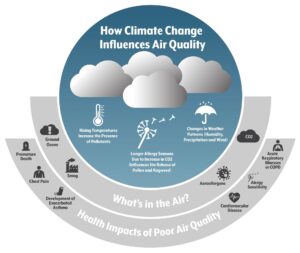
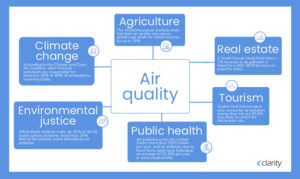

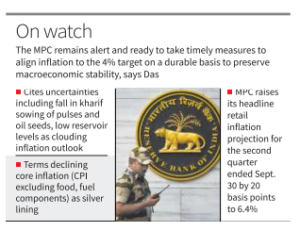

2 comments